Passkeys 2025: Secure Authentication Without Passwords
The way we secure our online accounts is undergoing a significant transformation. For decades, we've relied on passwords—strings of characters that are increasingly difficult to manage as our digital footprints expand. Today, passkeys are emerging as the modern alternative that addresses the fundamental flaws in password-based authentication.
Traditional passwords have served us well, but their limitations have become increasingly apparent. Many of us create weak passwords that are easily compromised or reuse the same credentials across multiple sites, creating vulnerabilities that hackers are quick to exploit. Phishing attacks have also grown more sophisticated, making it challenging to keep our accounts secure.
Passkeys offer a refreshing solution by leveraging the security features already built into our devices. Using cryptographic keys and familiar authentication methods like fingerprint scans or facial recognition, passkeys provide both enhanced security and improved convenience.
Key Takeaways:
| Aspect | What You Need to Know |
|---|---|
| Adoption Metrics | 1 billion+ users have activated passkeys; 15+ billion accounts now passkey-enabled |
| Security Impact | Up to 98% reduction in account takeovers; inherent resistance to phishing and credential stuffing |
| Business Case | 12x faster logins; significant reduction in password reset support costs |
| 2025 Outlook | Major financial institutions and 25% of top websites are expected to implement passkeys |
| Practical First Step | Look for passkey options in your most-used services; start with high-value accounts like banking and email. |
| What to Watch For | Different passkey types (device-bound vs. synced); recovery options if you lose your device |
Table of Contents
The Current State of Passkey Adoption
The trajectory of passkey adoption in 2025 shows strong signs that this technology is moving from an emerging solution to a mainstream authentication method. Over one billion individuals have already activated at least one passkey, demonstrating significant real-world adoption.
Consumer awareness has grown substantially over the past two years, jumping from 39% to 57%. The infrastructure readiness is even more telling—more than 15 billion online accounts have been enabled to support passkey authentication, creating a robust user ecosystem.
Andrew Shikiar, a leading figure in the FIDO Alliance, anticipates that by the end of 2025, one in four of the world's top 1,000 websites will offer passkey login options. This prediction reflects the growing confidence in passkey technology among major online service providers.
The adoption is spreading across diverse sectors. Major banks will begin large-scale passkey implementations in 2025, a significant endorsement given the banking industry's traditionally cautious approach to security innovations. Enterprises are increasingly deploying passkeys for employee authentication, motivated by improved user experience and enhanced security, particularly for staff handling sensitive information.
Who's Using Passkeys?
The adoption of passkeys spans a diverse range of companies and sectors, reflecting their versatility and broad appeal. Major technology platforms are leading the way, with companies like Amazon, Google, Microsoft, and Apple integrating passkey support into their services.
Institutions that traditionally prioritize security in the financial sector are beginning to embrace passkeys. American Express, Bank of America, Capital One, and Wells Fargo are among the financial services companies that have started offering passkey support.
E-commerce platforms have rapidly adopted passkeys. Amazon, Walmart, Best Buy, Target, and eBay now offer passkey authentication, making this technology accessible to millions of online shoppers.
The public sector is also moving toward passkey implementation, with services like Australia's MyGov leading the way. The State of Michigan's MiLogin system has already seen tangible benefits, reporting a significant reduction in password reset support calls after implementing passkeys.
Other notable adopters include:
- Social media and communication: Discord, LinkedIn, TikTok, X (Twitter), WhatsApp
- Content creation tools: Adobe, Notion
- Gaming services: PlayStation Network, Nintendo, Roblox
- Travel companies: Air New Zealand, Hyatt, KAYAK
- Cryptocurrency exchanges: Coinbase
Password managers such as 1Password, Bitwarden, Dashlane, and Google Password Manager have also integrated support for passkeys, providing users with centralized management of these credentials.
How Passkeys Work: A User-Friendly Approach
Passkeys represent a significant shift in how we think about authentication, replacing memorized passwords with cryptographic keys securely stored on devices. The underlying technology is both sophisticated and user-friendly, designed to enhance security without adding complexity.
At their core, passkeys use public-key cryptography, where each service you access gets a unique cryptographic key pair. The private key remains securely stored on your device, while the public key is registered with the website or application. When you log in, your device proves your identity using this private key without ever sharing the key itself across the internet.
The user experience is refreshingly simple. Instead of typing a password, you authenticate using the same biometric methods you already use to unlock your device—a fingerprint scan, facial recognition, or a device PIN.
Setting up passkeys varies slightly across platforms but follows a consistent pattern:
- On iPhones: You're typically prompted to save a passkey when signing up for a new account or within account settings on supported websites
- On macOS: Set up passkeys through the Passwords section in System Settings
- For Microsoft accounts: Navigate to Advanced Security Options and select the option for face, fingerprint, PIN, or security key.
- On Android: Find passkey settings within Google account security options
One of the most convenient features of passkeys is cross-device authentication. This allows you to use a passkey stored on one device (like your smartphone) to log in on another device (like your laptop) through Bluetooth connections or by scanning a QR code.
The Passkey Advantage
The growing adoption of passkeys is driven by several tangible benefits that improve both security and user experience.
Enhanced Security
Passkeys are inherently phishing-resistant because they rely on cryptographic verification tied to specific domains. Unlike passwords, which can be entered on fraudulent websites, passkeys will only work with legitimate sites. CVS Health reported a remarkable 98% reduction in account takeover fraud after implementing passkeys.
Passkeys also effectively eliminate credential stuffing attacks, where cybercriminals use stolen password databases to attempt access to other accounts. Since each passkey is unique to a specific service and never reused across sites, compromising one account doesn't endanger others.
Improved User Experience
Login times with passkeys are significantly faster than with traditional passwords. Some companies have reported dramatic improvements, with Tokyu documenting logins that are 12 times faster and TikTok experiencing speeds 2 to 17 times quicker than password-based authentication.
Organizational Benefits
Passkeys also offer operational advantages for organizations. After implementing passkeys, the State of Michigan's MiLogin system saw a reduction of 1,300 password reset support calls. This decrease in support overhead represents real cost savings while simultaneously improving the user experience.
Platform and Browser Support
One of the key factors driving passkey adoption is the broad support across major operating systems and web browsers.
Operating System Support
- Windows: Windows 10 and newer
- macOS: Ventura (13) and later
- ChromeOS: Version 109+
- iOS/iPadOS: Version 16+
- Android: Version 9+
Browser Support
- Google Chrome: Version 109+ (desktop and mobile)
- Safari: Version 16+ (iOS and macOS)
- Microsoft Edge: Version 109+ (desktop and mobile)
- Mozilla Firefox: Supports WebAuthn standard with ongoing feature enhancements
Syncing Capabilities
Each platform offers different approaches to managing passkeys across multiple devices:
- Apple: iCloud Keychain, with a dedicated Passwords app in macOS 15
- Google: Password Manager for Chrome and Android users
- Microsoft: Windows-synced passkeys for synchronization across Windows devices
Hardware security keys that adhere to the FIDO2 protocol are also compatible with passkey authentication, providing an additional option for users who prefer physical security tokens.
Challenges and Considerations
While passkeys offer significant advantages, they also come with certain challenges as this technology continues to mature.
One notable issue stems from the existence of different types of passkeys. Some are “device-bound,” meaning they remain on the specific device where they were created, while others are “synced” across multiple devices through cloud services. This distinction can create confusion when users encounter websites that support one type but not the other.
Device dependency is another consideration. Since passkeys are stored on user devices, a device's loss or damage could potentially affect access to accounts. While syncing solutions help mitigate this risk, users must understand their recovery options in case of device loss.
The transition from passwords to passkeys also presents adoption challenges. Many users have established password habits and may hesitate to change their familiar authentication methods. Clear education about passkeys' benefits and proper usage is essential for driving adoption.
Finally, there are current limitations in migrating passkeys between different vendors or platforms. This can create friction for users who switch devices or prefer specific passkey management solutions.
The Road Ahead: Expert Predictions
Industry analysts and security experts have made several insightful predictions about how passkey technology will evolve through 2025 and beyond.
The FIDO Alliance anticipates significant breakthroughs in the banking and payments sectors this year. Major financial institutions are expected to begin large-scale rollouts of passkey support in 2025. Companies like Mastercard and Visa are already piloting programs that utilize passkeys for transaction authentication.
The increasing sophistication of AI-driven phishing scams is likely to accelerate passkey adoption. As artificial intelligence makes it easier for malicious actors to create convincing personalized phishing attacks, passkeys' inherent phishing resistance becomes increasingly valuable.
Enterprise implementation of passkeys is expanding rapidly, with research showing that 87% of U.S. and UK workforces are deploying passkeys for employee sign-ins. Organizations are prioritizing passkey implementation for users who handle sensitive data.
The travel and hospitality industry, where frequent logins and handling of personal information are common, is also expected to see increased adoption. Early adopters like Air New Zealand and Hyatt have demonstrated the practicality of passkeys in this sector.
By the end of 2025, experts predict that approximately one in four of the internet's top 1,000 websites will support passkey authentication, marking a significant milestone in the journey toward a passwordless future.
Conclusion
The evolution of passkeys represents one of the most significant advances in authentication technology in recent years. Passkeys offer a thoughtful balance between enhanced security and improved user experience—a combination that has eluded password-based systems for decades.
The broad support across major platforms and services, combined with the tangible benefits already being reported by early adopters, suggests that passkeys are well-positioned to become a cornerstone of online authentication. While challenges remain in standardization and user education, the trajectory is clear: passkeys are transitioning from an emerging technology to a mainstream authentication method.
Now is an ideal time for individuals to begin familiarizing themselves with passkeys. When offered the option to create a passkey during account setup or in security settings, consider taking that step. The learning curve is minimal, as the authentication process typically leverages the same biometric methods you already use to unlock your devices.
For organizations, implementing passkey support represents an opportunity to enhance security while simultaneously improving the user experience. The reduction in support costs and potential protection against increasingly sophisticated phishing attempts make a compelling business case for adoption.
As we move through 2025 and beyond, the steady expansion of passkey technology across our digital landscape marks a meaningful step toward a more secure and user-friendly online experience—one that finally frees us from the limitations of traditional passwords while strengthening our collective security.
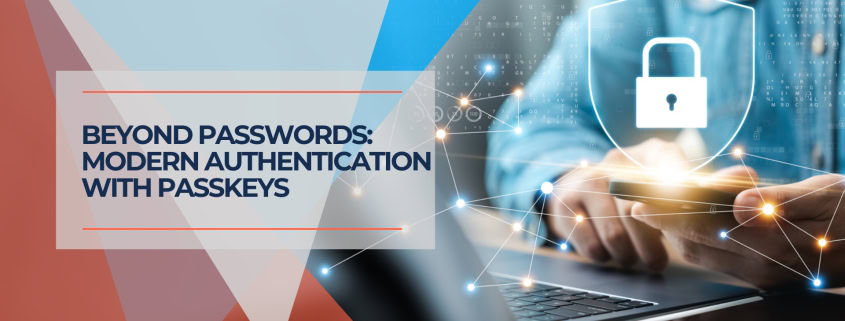

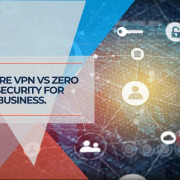

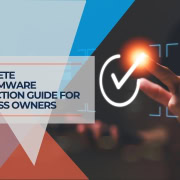

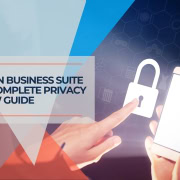
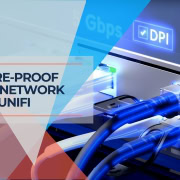



Having read more than a few explanations online about passkeys, and looking for what flaw might be my reason not to get one, it boils down to having the passkey stored on just one device in my array. I could share it, yes, but with security first and foremost, having it on just one reduces the risk by 2/3’rds.
But that is the catch – lose access to the device means no access at all to the passkey. Nobody is explaining recovery, and with biometric verification, I have yet to see how it’s not capable of being stolen. I already know some facial rec systems DO make mistakes as the indicators it scans for are limited. There is also the doppelganger issue – with expanding numbers, there are more people who look like us in the general population than ever. At one time it was calculated to be a dozen, it’s grown since then.
The major issue I now see is having a passkey on a device and it becoming tied into your banking. This is already a major privacy issue and also a corrupt power play in China, were you can only process financial transactions by phone, and posting online that can be traced back to someone who is then considered undesirable freezes their funds. They literally starve as they cannot get to the money. This has reported been used against a minority there already.
Passkeys sound like a big advance in security, the hook it, it makes you more vulnerable to select devices which only restricts your access. It also is vulnerable to overt control by government who are known oppressors, and will eventually become just another tool in their arsenal. At least with “secure” and cryptic passwords we were in control of the access we require – they can be used across the internet from any machine. While this is touted as a weakness and exactly how hackers steal our identity or funds, it’s actually our defense – to keep from being corraled into a passkey system which is controlled by a small elite. No? Ask around and see how they react. The honest ones will surmise it’s not impossible, but who can tell, those who plan on doing exactly that will defend it as being unbreakable, or without fallacy. I have already read one online source phrasing passkeys as infallible. Anyone who knows computers can tell you one certainty, if it can be programmed, it can be hacked. And will be.
For the present, I don’t need a passkey, but I certainly see how the inexorable push among major corporations and governments will make it mandatory – which is all you really need to know. When that happens, it’s forcing it on you.
Hi Tirod,
Thanks for taking the time to share such a detailed and thought-provoking comment. You’ve raised some very important points that get to the heart of the debate around passkeys, and I really appreciate you sharing your perspective. These are valid concerns that are worth discussing.
You’re right to question the potential downsides, and I’d like to address some of the issues you brought up:
On Recovery and Single Points of Failure: This is a crucial issue. While losing a primary device is a risk, the system is designed with recovery options. Most providers allow you to create multiple passkeys for the same account (for example, one on your phone and another on a physical security key). Furthermore, passkeys can be securely backed up to your cloud account (like iCloud Keychain or Google Password Manager), allowing you to restore them on a new device.
On Biometric Security: You’re correct that no system is 100% infallible. However, the key advantage of passkeys is that your biometric data (your face or fingerprint) never leaves your personal device. It’s only used locally to unlock the cryptographic key stored there. This is fundamentally more secure than passwords, which are transmitted and can be stolen from company servers in data breaches.
On Privacy and Control: The concerns about potential overreach are understandable with any new technology. However, the current passkey standard (from the FIDO Alliance) is decentralized by design. The “key” is on your device, not in a central database that a single entity can easily control or access. The design is intended to empower the user, not take control away.
On Hacking: You’ve hit on a core truth of cybersecurity: if it can be programmed, it can be a target. However, the public-key cryptography that powers passkeys is inherently resistant to the most common forms of hacking we see today, like phishing and credential stuffing attacks, which are responsible for the vast majority of account takeovers.
Ultimately, you’ve highlighted the critical balancing act between security, convenience, and individual control. It’s a conversation we all need to be a part of as this technology becomes more widespread.
Thanks again for the fantastic comment and for pushing the discussion forward!